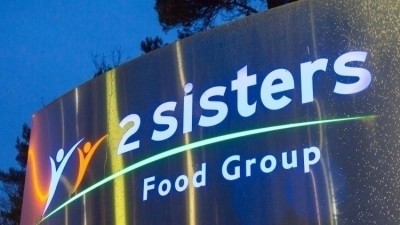Supply chain will take time to ‘pivot’ as foodservice reopens

UKHospitality chief executive has told the Environment, Food and Rural Affairs (EFRA) Select Committee.
She was speaking during a session investigating the food supply chain in the wake of the COVID-19 crisis as the Government revealed plans to allow venues such as pubs, restaurants and coffee shops to reopen on 4 July.
“In an ideal world we would have had two to three weeks’ notice to allow our supply chain to pivot,” said Nicholls, who represents operators within the hospitality and leisure sectors.
“It took them a while to pivot towards retail and smaller pack sizes that they needed. It may take a little while for some them to pivot [back].”
She said the best way to support small food manufacturing business and food supply businesses was to get the hospitality operators up and running. But she admitted there would “glitches” in the supply chain, with a gradual phased reintroduction.
Consultation
Talking about the implementation of the lockdown in March, she revealed there had been “no meaningful” consultation with the Government and said it took the industry by “surprise”.
“In that critical period, it was very fast-moving and there was not the ability to have a detailed consultation,” she said.
“But in that period from 16 March to the week after the closure took effect, we were providing information to DEFRA (Department for Environment, Food & Rural Affairs) in real time as to what was happening on the streets and in the towns and city centres and as our restaurants, takeaway and coffee shops closed down.”
She said the industry worked closely with DEFRA as the country went into the lockdown period, and there were daily supply and food resilience calls to be able to manage issues such as how to redirect food to retail and how to preserve as much food as possible within the supply chain.
Support
“We worked with quite a few of the wholesalers and Brakes, so that we could supply food to pubs so that they could sell, so we could support the growers, support the farmers and the artisan manufacturers,” she said.
Speaking during a later session of the EFRA Committee hearing, Tim Lang, professor of food policy, City, University of London said he was “troubled” at how the food system had been managed during COVID-19.
He added that he thought that DEFRA’s own resilience statement was “extremely complacent” and said there was no preparation. He accused the Government of ad hoc management and said there were “heroic actions” by civil society.
“The assumption was that, by focusing on supply, it would automatically resolve problems of consumption. It didn’t. It hasn’t,” he said.















